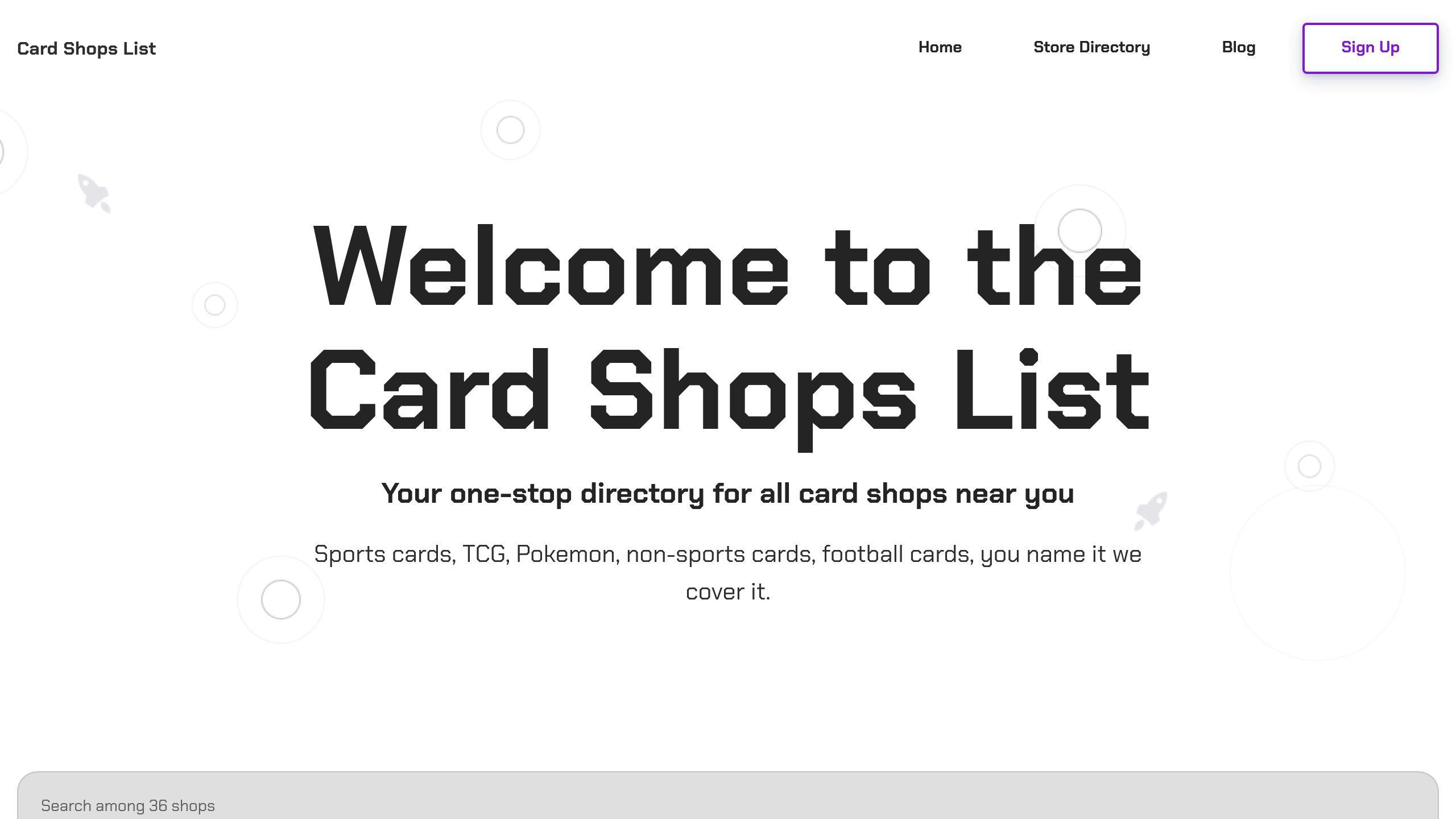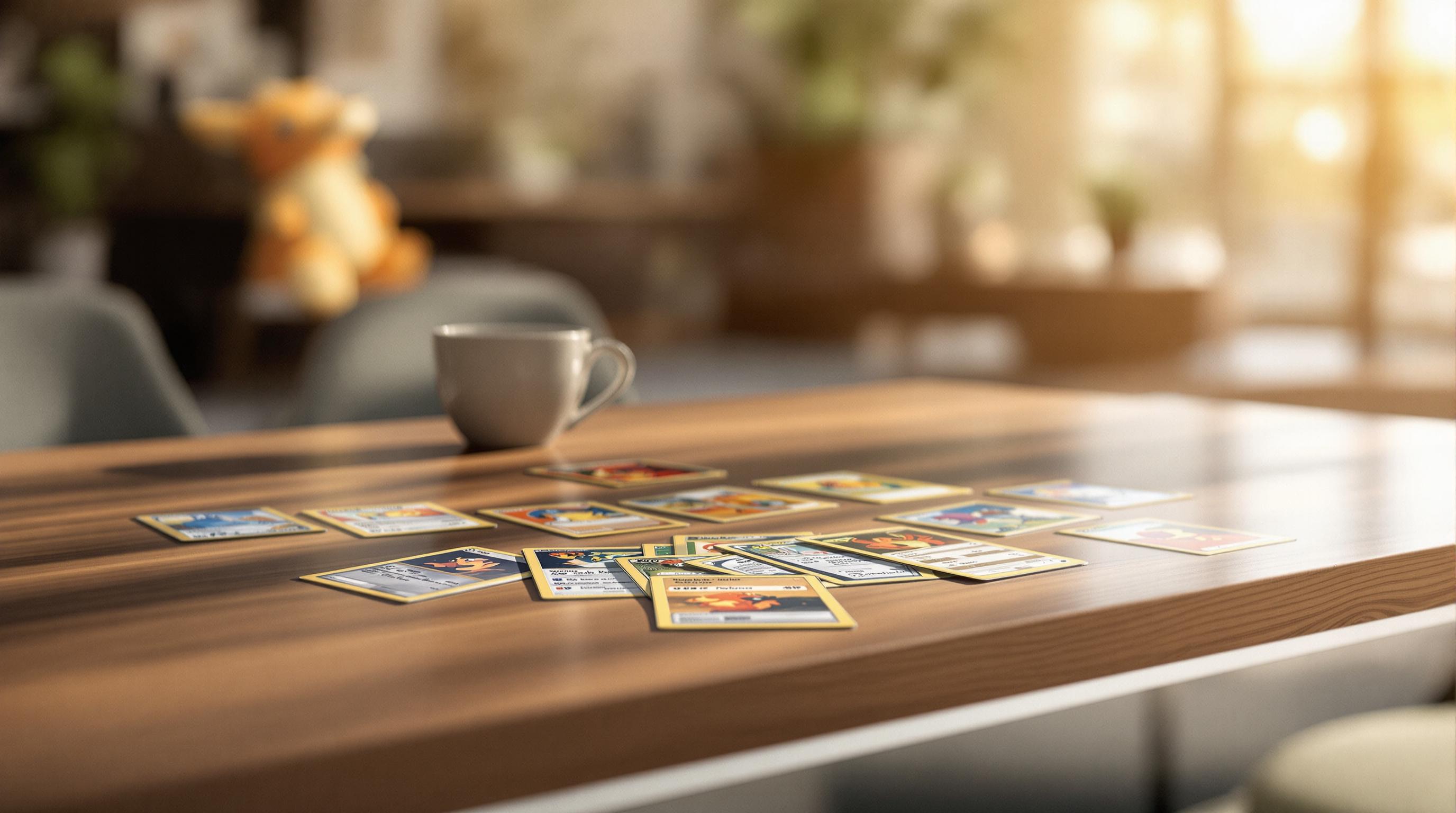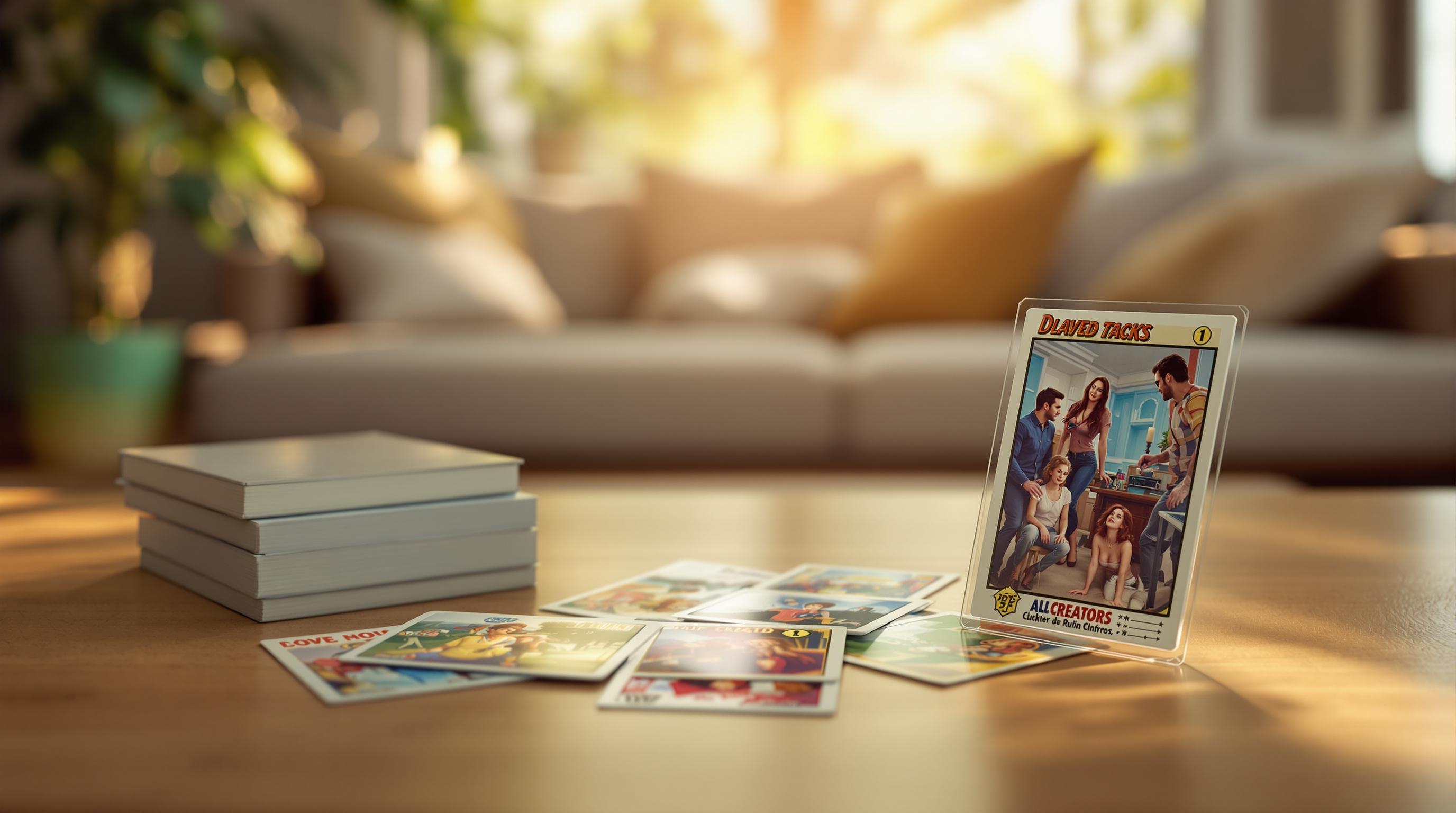Gaming leagues in card shops are more than just events - they're community builders. These leagues transform shops into social hubs where players connect, compete, and form lasting bonds. Here's how:
- Create Gathering Spaces: Shops provide dedicated areas for players to meet and play.
- Encourage Friendly Competition: Leagues balance challenge and inclusivity to engage all skill levels.
- Offer Rewards: Exclusive items and milestones keep players coming back.
- Host Regular Events: Consistent schedules foster community and loyalty.
- Promote Inclusivity: Welcoming spaces and varied games attract diverse players.
How Gaming Leagues Build Community
Gaming leagues turn card shops into bustling community hubs where players connect and build lasting relationships. These organized events encourage regular participation and create a welcoming environment for players to bond over shared interests.
A Gathering Place for Gamers
Card shops aren't just retail spaces - they're meeting spots where players come together outside of home or work. Many stores are designed with this in mind, featuring dedicated gaming tables, comfy seating, and even lounges or snack areas. These setups make it easy for players to hang out, play games, and connect.
"The idea of a game store is evolving. One of my goals with having a game store is trying to also have a type of a third space." - An, Game Store Owner [3]
These spaces go beyond being just places to play. They become community centers where friendships naturally form through shared experiences.
Encouraging Friendly Competition
Competitive play is a key way gaming leagues bring people together. Stores carefully design their leagues to ensure a mix of challenge and inclusivity, welcoming both seasoned players and newcomers. Take the UniVersus Gaming Network, for instance - it helps stores run competitive events that are both engaging and approachable [2].
These events spark skill-sharing, team camaraderie, and memorable moments, all of which strengthen the sense of community.
Incentives That Keep Players Coming Back
Reward systems are another way gaming leagues build community. Exclusive cards, milestone tracking, and special events give players a sense of accomplishment and pride. These rewards not only motivate participation but also deepen players' connection to their local gaming scene.
Elements of Successful Gaming Leagues
Running a successful gaming league involves focusing on several important aspects that create a fun and engaging community. Card shops that get these right often see more visitors and build stronger loyalty among players.
Offering a Variety of Games
Having a mix of games is crucial for any gaming league. Featuring popular trading card games like Pokémon, Magic: The Gathering, and Yu-Gi-Oh! helps attract players with different tastes and skill levels. The UniVersus Gaming Network (UGN) is a great example of this, as it supports stores with tools to host a range of events tailored to their local communities [2]. Once a good variety of games is in place, regular schedules give players consistent chances to participate.
Scheduling Regular Events
Consistent events are essential for keeping a gaming community active. Whether it’s tournaments or casual play sessions, these events help maintain interest and turn shops into more than just places to buy cards - they become social hubs where players can meet, compete, and connect.
Creating a Welcoming Space
A thriving gaming league depends on an inviting atmosphere. Clear rules promote fair play, friendly staff make players feel appreciated, and comfortable setups improve the overall experience. Hosting events that include all skill levels ensures everyone feels welcome.
Card shops like An's store in New York City excel at this by hosting a variety of events, from Magic: The Gathering tournaments to tabletop RPG nights [3]. This inclusive approach helps players of all backgrounds feel at home and fosters a growing community.
sbb-itb-0db97a5
Growing Your Gaming League
Expanding your gaming league does more than just increase participation - it creates a stronger sense of community, transforming your store into a lively gathering spot for players.
Using Social Media and Local Outreach
Platforms like Facebook and Instagram are excellent for promoting leagues, organizing events, and sharing updates about your store. These tools help you connect with players and keep them engaged. You can also team up with nearby hobby shops or community centers to host joint events. This kind of collaboration not only brings in new players but also strengthens your local gaming network.
Partnering with Influencers and Groups
Teaming up with gaming influencers or local gaming groups can bring more attention to your league. Many successful stores mix things up by offering a variety of activities - think tournaments, tabletop RPG sessions, and board game nights. This variety helps create a welcoming and dynamic community space.
"We help bring the world to sellers... It's getting harder and harder to run a business without an e-comm presence, so we bring the world's eyes to our seller. In many ways we help keep that brick-and-mortar thing afloat, which we think is cool." [3]
Listing on Directories Like Card Shops List

Adding your store to directories like Card Shops List can significantly boost visibility. Be sure to include details like tournament schedules, game formats, and contact information. This is especially helpful for players looking for games like Pokémon, Magic: The Gathering, or Yu-Gi-Oh! Keep track of attendance and feedback from events to fine-tune your future plans.
Conclusion
Creating successful gaming leagues offers card shops a chance to build strong communities while boosting their business. These leagues do more than just fill tables - they create connections and foster player loyalty.
As the trading card game scene continues to expand, stores that focus on community engagement stand out. By becoming inviting "third spaces", card shops can cultivate loyal groups of players and maintain steady participation. Hosting a variety of events, promoting an inclusive environment, and tapping into tools like social media and online directories are key strategies for achieving this.
Using platforms like social media, forming partnerships, and listing on directories helps stores expand their visibility and strengthen their role as community hubs. These efforts not only improve the player experience but also set the stage for long-term success. When managed well, gaming leagues can evolve into vibrant communities that support both the store and the gaming world at large.
The real success comes from creating spaces where players feel valued and excited to return. By organizing engaging events and encouraging connections among players, card shops can establish strong, enduring communities. Gaming leagues turn stores into gathering spots where friendships grow and bonds within the gaming community deepen [1].


